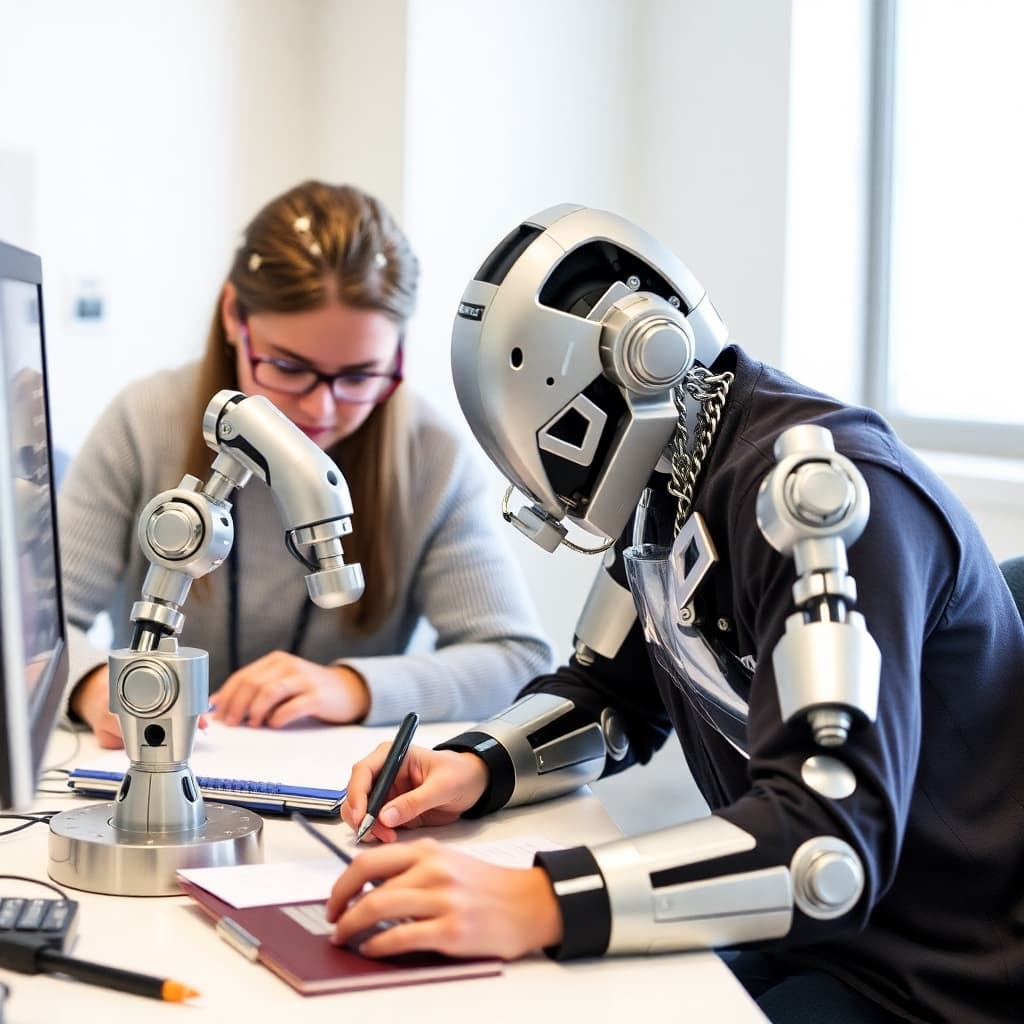AI-Powered Study Techniques: Maximizing Learning Efficiency

In the digital age, artificial intelligence (AI) is not just transforming industries; it's revolutionizing the way we learn. As students face increasing academic pressures and information overload, AI-powered study techniques are emerging as powerful tools to enhance learning efficiency and effectiveness. This article explores how AI is reshaping study methods and how students can leverage these technologies to maximize their learning potential.
The Science of Learning Meets AI
Before diving into AI-powered techniques, it's essential to understand the cognitive science behind effective learning:
- Spaced Repetition: Reviewing information at gradually increasing intervals.
- Active Recall: Actively retrieving information from memory.
- Elaborative Rehearsal: Connecting new information to existing knowledge.
- Metacognition: Thinking about one's own thinking and learning processes.
AI technologies are now capable of optimizing these scientifically-proven learning strategies, tailoring them to individual students' needs and learning patterns.
AI-Enhanced Study Techniques
1. Intelligent Flashcards
Traditional flashcards get a high-tech upgrade with AI:
- Adaptive Scheduling: AI algorithms determine the optimal time to review each flashcard based on your recall performance.
- Dynamic Content: Flashcards evolve based on your responses, focusing more on challenging concepts.
- Multimodal Learning: AI can incorporate images, audio, and video into flashcards for enhanced memory retention.
2. Personalized Study Plans
AI can create and adjust study plans in real-time:
- Learning Style Analysis: AI assesses your preferred learning style and tailors content delivery accordingly.
- Progress Tracking: Continuous monitoring of your progress allows for dynamic adjustments to your study plan.
- Time Management: AI suggests optimal study times based on your schedule and peak productivity hours.
3. Smart Note-Taking Assistants
AI-powered note-taking tools enhance the way you capture and review information:
- Key Point Extraction: Automatically identifies and highlights crucial information from lectures or readings.
- Concept Linking: Creates visual mind maps connecting related ideas across different subjects.
- Question Generation: Generates practice questions based on your notes to reinforce learning.
4. Intelligent Tutoring Systems
AI tutors provide personalized, on-demand learning support:
- Adaptive Questioning: Adjusts the difficulty and type of questions based on your responses.
- Explanation Generation: Provides tailored explanations for complex concepts, using analogies and examples that resonate with your existing knowledge.
- Misconception Detection: Identifies and addresses common misunderstandings in real-time.
5. Predictive Performance Analytics
AI can forecast academic performance and identify areas for improvement:
- Early Intervention: Predicts potential struggles in specific topics before they become significant issues.
- Strength Amplification: Identifies your strongest areas and suggests ways to leverage these strengths across subjects.
- Learning Trajectory Mapping: Visualizes your learning path and projected outcomes, allowing for proactive adjustments.
Implementing AI-Powered Study Techniques
To make the most of these AI-enhanced study methods:
- Choose the Right Tools: Research and select AI-powered study apps that align with your learning goals and style.
- Start Small: Begin by incorporating one or two AI techniques into your existing study routine.
- Be Consistent: Regular use of AI study tools allows the algorithms to learn and adapt to your needs more effectively.
- Provide Feedback: Many AI systems improve through user feedback, so actively engage with the tools to enhance their effectiveness.
- Balance with Traditional Methods: While AI can significantly boost efficiency, don't neglect proven traditional study methods that work for you.
The Future of AI in Studying
As AI continues to evolve, we can expect even more advanced study techniques:
- Emotion-Aware Learning: AI systems that can detect and respond to your emotional state, adjusting the study experience to optimize engagement and reduce stress.
- Virtual Reality Integration: Immersive VR environments for studying complex 3D concepts in fields like biology or engineering.
- Cross-Disciplinary Connections: AI that can identify and explain connections between seemingly unrelated subjects, fostering a more holistic understanding of complex topics.
Ethical Considerations
While AI-powered study techniques offer immense potential, it's crucial to consider ethical implications:
- Data Privacy: Ensure that the AI tools you use have robust data protection measures in place.
- Algorithmic Bias: Be aware that AI systems may have inherent biases and strive for a diverse range of learning resources.
- Over-Reliance: Remember that AI is a tool to enhance, not replace, your own critical thinking and learning skills.
Conclusion
AI-powered study techniques are revolutionizing the way we learn, offering unprecedented opportunities for personalized, efficient, and effective studying. By leveraging these intelligent tools, students can optimize their learning processes, better manage their time, and achieve improved academic outcomes.
As with any technological advancement, it's essential to approach AI study tools with a balance of enthusiasm and critical thinking. Used wisely, these AI-enhanced techniques can not only boost academic performance but also foster a lifelong love for learning in our increasingly complex and information-rich world.
Embrace the AI revolution in studying, but remember that the most powerful learning tool is still your own curiosity and determination. Let AI be your assistant in the exciting journey of knowledge acquisition and personal growth.
Table of Contents
- AI-Powered Study Techniques: Maximizing Learning Efficiency
- The Science of Learning Meets AI
- AI-Enhanced Study Techniques
- 1. Intelligent Flashcards
- 2. Personalized Study Plans
- 3. Smart Note-Taking Assistants
- 4. Intelligent Tutoring Systems
- 5. Predictive Performance Analytics
- Implementing AI-Powered Study Techniques
- The Future of AI in Studying
- Ethical Considerations
- Conclusion
Related Posts

Discover how AI is transforming educational assessment, moving beyond traditional testing to provide more accurate, comprehensive, and fair evaluations of student learning.

Explore how AI is enhancing collaborative learning experiences, preparing students for the future of work through innovative group projects and team-based problem-solving.

Explore how AI is being used to develop emotional intelligence in students, creating more empathetic, self-aware, and socially skilled learners for the 21st century.

Discover how AI is breaking down barriers in education, providing personalized support for students with diverse needs and learning differences.

Discover how AI is transforming language education, making it more accessible, personalized, and effective for learners worldwide.

Explore how AI is revolutionizing Science, Technology, Engineering, and Mathematics education, preparing students for the technological challenges of the future.